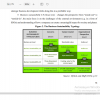Тема: Consumers’ perception of online retail stores' image in case of sustainable business strategy: impact on customer-based brand equity
Закажите новую по вашим требованиям
Представленный материал является образцом учебного исследования, примером структуры и содержания учебного исследования по заявленной теме. Размещён исключительно в информационных и ознакомительных целях.
Workspay.ru оказывает информационные услуги по сбору, обработке и структурированию материалов в соответствии с требованиями заказчика.
Размещение материала не означает публикацию произведения впервые и не предполагает передачу исключительных авторских прав третьим лицам.
Материал не предназначен для дословной сдачи в образовательные организации и требует самостоятельной переработки с соблюдением законодательства Российской Федерации об авторском праве и принципов академической добросовестности.
Авторские права на исходные материалы принадлежат их законным правообладателям. В случае возникновения вопросов, связанных с размещённым материалом, просим направить обращение через форму обратной связи.
📋 Содержание
CHAPTER 1. LITERATURE REVIEW 9
1.1. Transition towards sustainable business strategy 9
1.2 Sustainable business strategy in the online retail industry 15
1.3 Consumers’ perception of sustainable business strategy 17
1.4 Brand equity, corporate image, and perceived sustainability of a company 22
CHAPTER 2. RESEARCH METHODOLOGY 29
2.1 Case of online retail industry in Russia 29
2.2 Research methodology 32
2.3 Selection of companies and creation of the profiles 33
2.4 Questionnaire development 34
2.5 Data collection and analysis 37
CHAPTER 3. EMPIRICAL STUDY 39
3.1 Description of the obtained sample 39
3.2 Data analysis 41
3.3 Discussion of the results 48
3.4 Theoretical contributions 51
3.5 Managerial implications 52
General conclusion 54
References 56
Appendices 66
📖 Введение
Growing concerns about sustainability challenges have brought the topic into the focus of all stakeholders, forcing them to adapt quickly to new realities. Indeed, the COVID-19 pandemic outbreak has led to an innovation drive in many sectors caused by a change of consumption patterns. After one year of the COVID-19 pandemic, 58% of consumers said they are more mindful of sustainable impact than they were before (Mastercard, 2021). The necessity is appearing for businesses not only to incorporate sustainable development goals into their operations but also to track and evaluate consumers’ perception of the company's sustainable strategy. Failure to meet the new expectations of consumers puts the entire business at risk. At the same time, the perception of new information about sustainable strategy by consumers is influenced by many factors and companies need to understand which particular aspects affect the perception of customers and can help to add value to their business (Naess et al., 2011).
In this regard, the online retail industry, which is experiencing rapid growth, can benefit from implementing a sustainable business strategy. The transition from traditional physical to online stores has raised consumers’ expectations for online retailers to be more responsible toward the society and environment (Chen et al., 2020). Indeed, the online retail sector which experienced the fastest growth in the last 6 years during the pandemic seems to be an interesting example to analyze. With the spread of technology, consumers are able to purchase products from any location and the number of new consumers is expected to rise in the upcoming years (Data Insight, 2021). This will result not only in the further growth of the online retail business but also in the increase of its impact on our environment and society. Already online retailers are subject to certain criticism for causing harmful effects from their operations (McKinsey Global Institute, 2021). At the same time, online retailers have the ability to improve their value chain and make the services that they provide more sustainable. According to the research by IBM Institute for Business Value, a sustainable agenda can be a competitive advantage for online retailers as it can improve their corporate image and increase brand value for consumers. Further growth of the online shopping sector depends significantly on the introduction of a new sustainable strategy and analysis of consumer patterns, which make it possible to reshape the market structure. Therefore, a sustainable agenda is considered to have the potential to enhance consumers’ perception of online retailers’ image and attract new clients (Chen et al., 2020; Marin-Garcia et al., 2021).
However, taking into consideration the recent increase in the popularity of online retailers, this sector is still underrepresented in the current research. Besides, there is still a lack of studies on the actual consumers’ perception of companies that adopt a sustainable business strategy. This fact makes it difficult to build a sustainable business strategy because during the process of strategy development companies focus on the preferences of their stakeholders, including consumers.
Therefore, the main aim of this study is to identify the impact of sustainable business strategy on consumers’ perception of online retail stores’ image and customer-based brand equity.
Research gap and questions
As the results of the literature review demonstrate, the approach of addressing sustainability as a new opportunity to achieve business performance goals is already well established in academic research. However, several research gaps were identified for the current state of the topic development in the literature. Firstly, knowledge about how the introduction of sustainable business strategy influences consumers’ perception of corporate image and customerbased brand equity remains fragmented. Secondly, industry-specific research is quite rare with the majority of studies comprising consumers’ perception of sustainable business strategy as a whole. Furthermore, currently in the existing research, non-experimental methods are dominating which leads to certain limitations, in particular, to the inability to determine a causal relationship. On the contrary, the experimental methodology allows revealing real perception patterns of consumers because of the possibility to manipulate the conditions. Besides, although the existing literature suggests that there is a positive relationship between consumers’ perception and sustainable strategy attributes (Gauthier, 2017; Ferguson et al., 2017), the research on the online retail industry does not take into account the specificity of online stores and virtual shopping experience of consumers which is going to be taken into account in this study.
Thus, the research questions that are going to be addressed in this work are:
Q1. How sustainable business strategy of online retailers influence their perceived sustainability?
Q2. How perceived sustainability of online retail retailers can influence the corporate image and customer-based brand equity?
In the meanwhile, the research gap also exists in understanding the cultural context of the topic. In terms of regions, most studies are focused either on developed western countries (European Union and North America) or developing countries with large populations (China and India). Scholars highlight these limitations and argue for further research examining other developing nations with a market growth potential (Chen et al., 2020). Therefore, research on the Russian market can contribute significantly to filling in this gap.
This work will be structured in the following way: firstly, the review of the relevant literature sources related to the topic is going to be discussed, secondly, the research methodology will be introduced, then, the authors will continue with the description of empirical study and the discussion of the result, highlighting the theoretical contributions and managerial implications of this study.
✅ Заключение
The review of existing works and industry analysis demonstrated that although online retail is not directly associated with sustainability, several online retail companies have started implementing sustainable development goals into their strategy, thus trying to move towards the new corporate sustainability 3.0 model. However, they are still aiming at creating shared value that demonstrated that the strategic transformation process is just in the beginning phase and the corporate sustainability 2.0 approach remains the most widespread among online retail companies. In this regard, to ensure a positive perception of the introduction of sustainable business strategy, companies have to assess consumers’ opinions regarding the implemented changes. For this reason, an experiment was conducted in this study to evaluate how consumers perceive online retailers in case of sustainable business strategy.
As a result of an experiment carried out to analyze perceived company’s sustainability, corporate image, and customer-based brand equity, it was found out that on average evaluation of these metrics by consumers is higher when they are aware of the sustainability-related initiatives that a company is implementing. Besides, it was revealed that consumers’ perception of a company’s sustainability has a positive impact on online retailers’ image and customer-based brand equity. What is more, environmental dimension of sustainability contributes the most to the difference in consumers’ perception. These results demonstrated that sustainable agenda has the power to enhance consumer-based marketing metrics which can potentially retain existing users and attract new clients. Nevertheless, to achieve these desired for online retailers results they should make consumers aware of their projects in the sustainable development sphere by communicating the key message and information about activities to consumers via available channels.
From a practical point of view, it was recommended that online retailers implement sustainable development goals into their strategy and operations, as well as include sustainability- 54
related agenda in communication content. Therefore, the sustainable business strategy not only creates external value for online retailers’ stakeholders but also brings internal benefits for business by improving the society and environment it operates in, thus, enhancing its perception by consumers.





